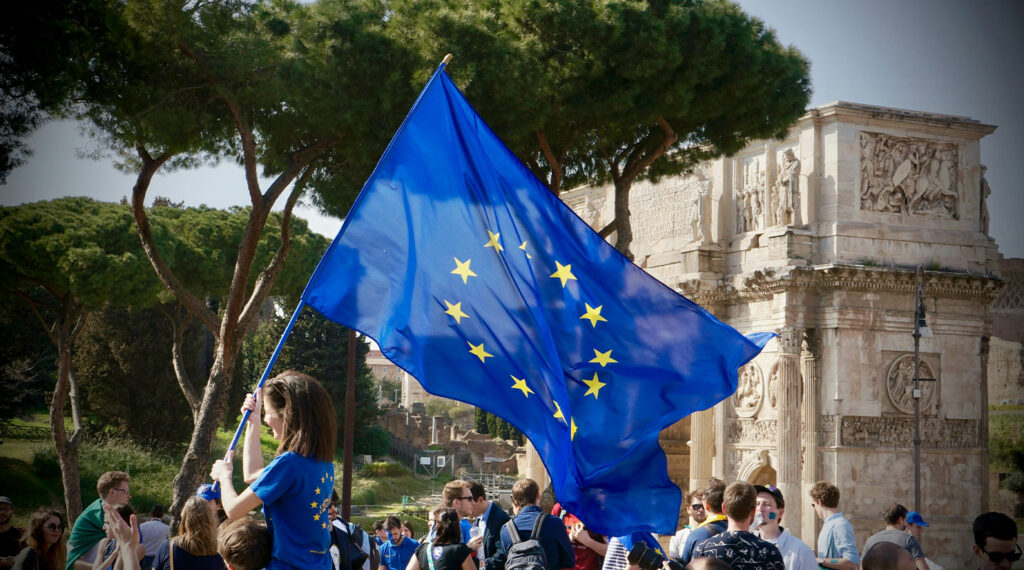The EU election results confirm the need to stand up for democracy, rule of law, fundamental rights and civil society space

The EU elections showed that with a large number of Eurosceptic and far-right MEPs entering the European Parliament, there is an urgent need to stand up for the EU, democracy, rule of law, fundamental rights and civil society space.
Ok the Eurosceptic MEPs will not be in the majority. The European People’s Party will form more than a quarter of the 720 MEPs in the European Parliament. The Socialists and Democrats (S&D) remained stable as the second largest group, while the liberal Renew Europe group was decimated but still remains the third largest group in the European Parliament. The Greens lost a significant percentage compared to the last EU election.
Far-right forces made major gains across the bloc and also among young people. In France, the National Rally received almost one third of the votes. Italian Brothers of Italy scored more than a quarter of votes. In parts of East Germany, the Alternative for Germany also gained one-third (though the German average is at 16%). The sheer number of far-right MEPs will put rightward pressure on EU policy. They will work towards a harder line on immigration, oppose green measures and certainly also advocate for less EU. This has to be a wake up call.
What are some of the other potential implications of the voting results? With the EPP being the strongest force in the European Parliament the EPP could shift the agenda to the right. While the EPP could again join a grand coalition with the socialists and liberals, it could also negotiate a working relationship on some issues with parties further to the right. Already there is a new zeitgeist among various policymakers influenced by geopolitical factors that show a move into a direction of more security and defence needs, more competitiveness of the EU single market versus other markets and less green deal. What will remain of the ambitious green agenda and the Social Economy agenda?
The Greens shrank, in particular in France and Germany. Despite small advances in countries like the Netherlands and Denmark, the group dropped in size and this will likely weaken the Green Deal perspective. In our context it is also worth noting that European Greens’ manifesto acknowledges the encroaching limitations on civil society organisations and also advocates for concrete actions to reverse this trend. The Greens voice may however be less vocal and influential.
The Renew Europe group also lost seats, especially in France. Emmanuel Macron has called a snap election following the victory of the far-right National Rally and one can only hope that the new election in France does not reproduce the French far-right voting percentage shown in EU elections.
But the strong results of the far right in some national and now European elections should not come as a surprise, over the past years populist voices gaining ground and even streamlined to some extent in the public discourse.
The anti-democratic and anti-EU forces are gaining influence and this creates risks to our European core values such as democracy, rule of law, and fundamental rights and with that also to civil society and philanthropy space. This hence also has to be our sector’s wake up call!
We cannot take our own space for granted and we already see that further restrictions are being introduced on our sector. Slovakia is about to approve a foreign-agent type of NGO law, which will require NGOs that receive foreign funding to label them as foreign resourced organisations.
These events all make our European Philanthropy Manifesto with 4 steps to introduce what we call a single market for philanthropy, ever more relevant. Enabling frameworks, facilitation of cross-border philanthropy and a better dialogue and partnership with public actors are needed for our sector to play its part in moving towards a society that works for people and the planet. Our Philea call to action is strongly tied to our joint civil society manifesto. Philanthropy and wider civil society space are crucial parts of our democratic, rule of law and fundamental rights-based pluralistic societies.
And what is also clear is that our societal challenges and its solutions do not stop at national borders. Social, climate, migration, health, technological development and monetary policies all have trans-border elements and certainly peaceful resolutions to global crises require transnational efforts. Similarly different actors including civil society actors are needed to contribute towards solutions.
We all carry responsibility for the future of the European Union to remain based on democracy, rule of law and fundamental rights with citizens that care for those values. We all have connected problems and struggles and we need to build bridges and create trust to jointly work towards a society that works for people and the planet.
Will we stand up before its too late?
Authors

